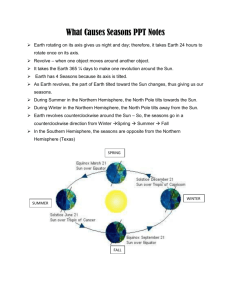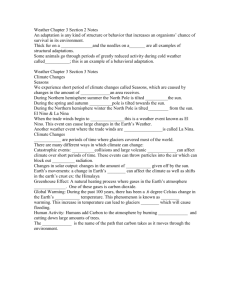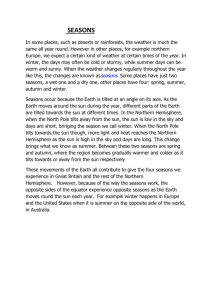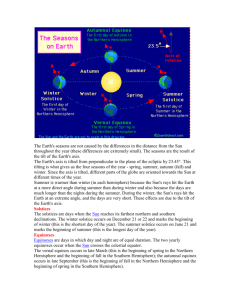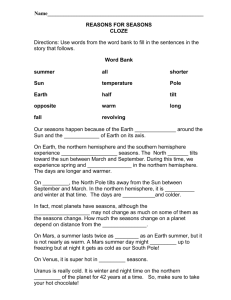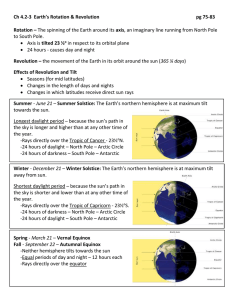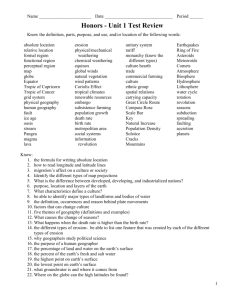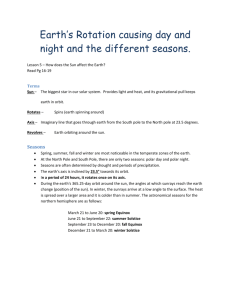The 4 Seasons - Ka'u Science
advertisement
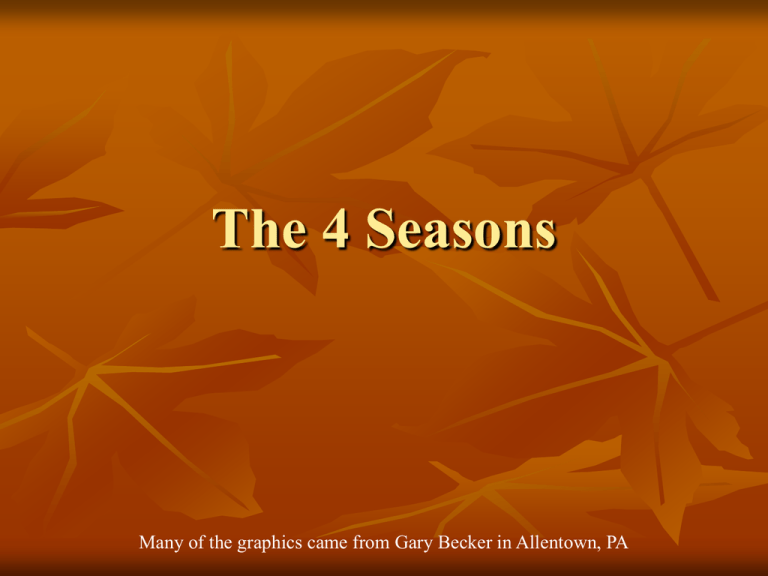
The 4 Seasons Many of the graphics came from Gary Becker in Allentown, PA What causes the seasons on Planet Earth? Winter – Spring – Summer – Fall – Galileo’s image of the Earth and Moon Are the Seasons caused by the Earths orbit? Maybe the Earth is closer to the sun in the summer, and farther away in the winter??? Well, it’s true if you live in Chile, Argentina, Australia and other places in the southern hemisphere… September December / January June/July March So the Earth is actually closer to the sun in December/January. This makes the southern hemisphere’s summer potentially hotter than the northern hemisphere’s. Of course, overall climate and other factors affect the real winter weather. The Solution!!! The Earth is tilted 23.5° What do you mean “tilted” – compared to what? OK, compared to the plane it makes in orbit around the sun – it is 23.5 degrees off straight up and down. From a Northern Hemisphere perspective What’s this “Northern Hemisphere Perspective” all about? The seasons are “opposite” in the Southern Hemisphere – Winter is in June-July-August and Summer is in December-January Look at the image again, and notice the people in the south are “opposite” You won’t see snow for Christmas in Australia Southern Perspective Vernal Summer Winter Autumnal The Suns motion during a year Northern Hemisphere Hawaii is special Since Hawaii is just south of the Tropic of Cancer – there are two days in the year when the sun is directly overhead. In addition, there are a number of weeks when the sun is to the “north” of us. Anyone living in the Tropics (between 23.5° N and 23.5° S) has one or two days with the sun directly overhead. Intensity of Sunlight depends on Angle Warmer Cooler Shadows Latitude, Shadows and Intensity At the Equinox An Example from North America December South Pole Summer June South Pole Winter Special Latitudes North Pole Arctic Circle Tropic of Cancer Equator Tropic of Capricorn Antarctic Circle South Pole 90° N 66.5° N 23.5° N 0° 23.5° S 66.5° S 90° S Special Days North Pole Midsummer – June 21 Arctic Circle June 21 Tropic of Cancer June 21 Equator March 21 & September 21 Tropic of Capricorn December 21 Antarctic Circle December 21 South Pole Midsummer – December 21 Note – I’ve said the 21st, but there is some variation – sometimes 22nd or even 23rd it has to do with leap years and the fact that a year is actually 365.25 days long The view to the North - Polaris The view to the South – No “south polar star” Disclaimer Aloha I put together these power points for use in my science classes. You may use them in your classes. Some images are public domain, some are used under the fair-use provisions of the copyright law, some are mine. Copyright is retained by the owners! Ted Brattstrom
